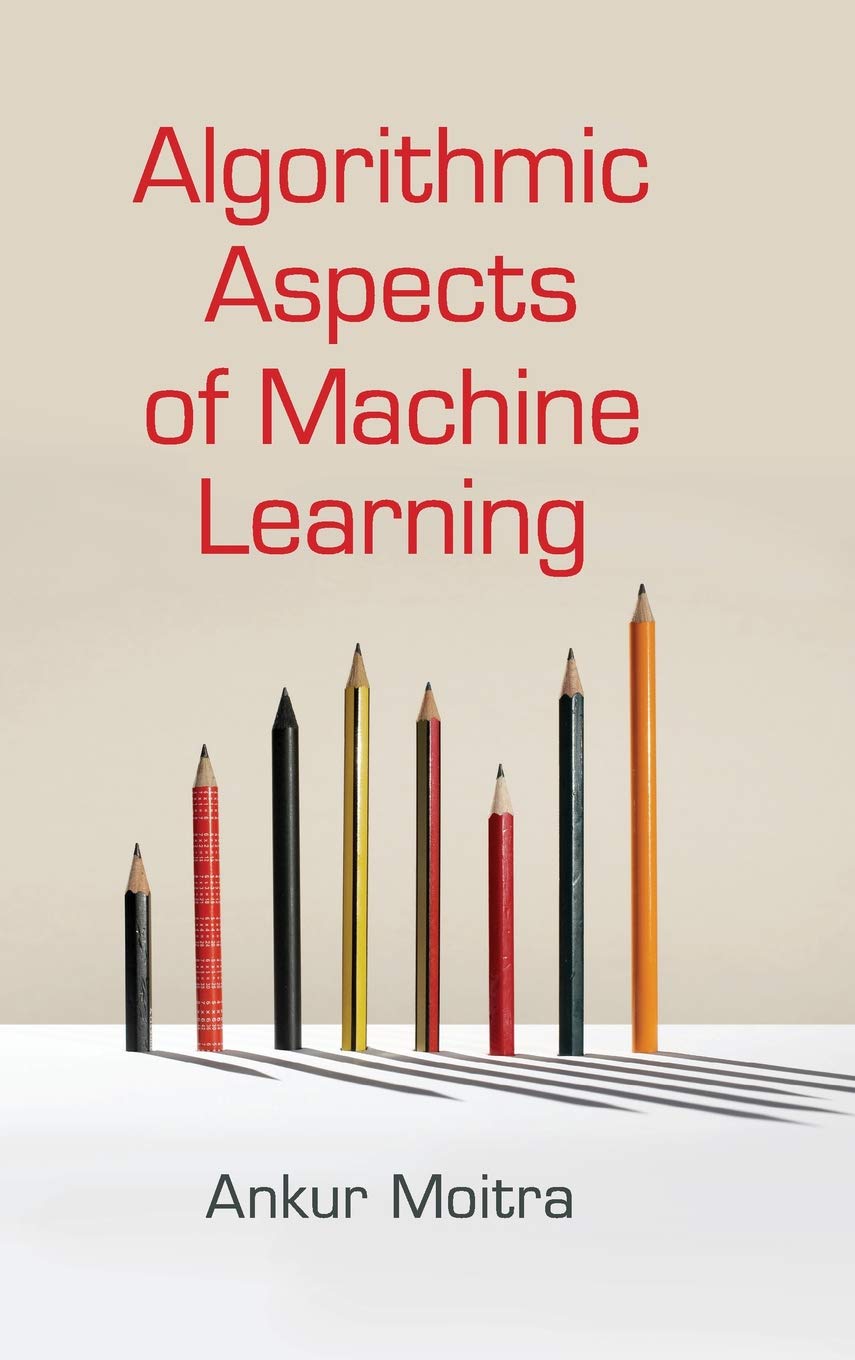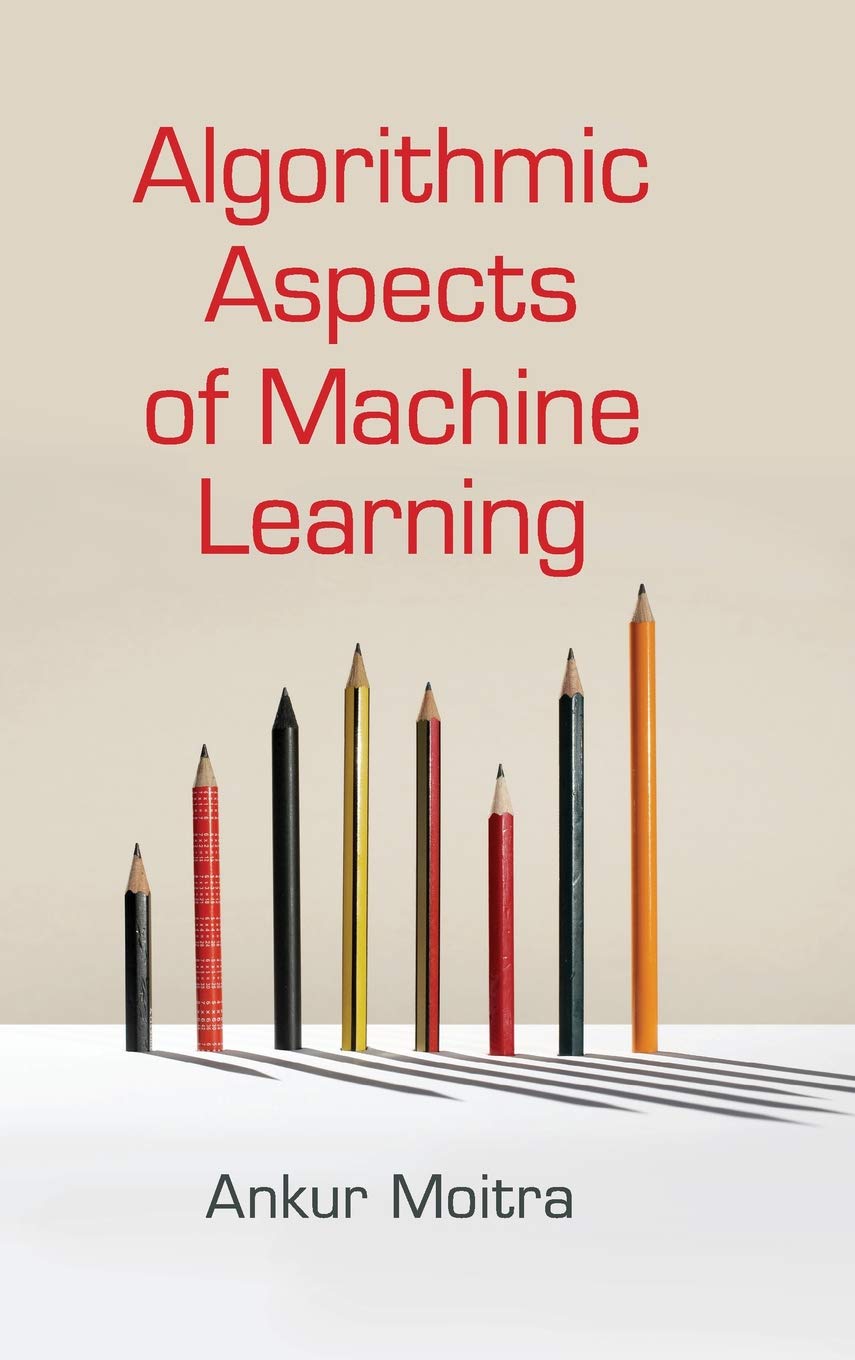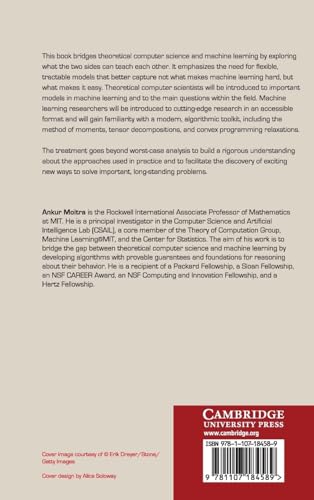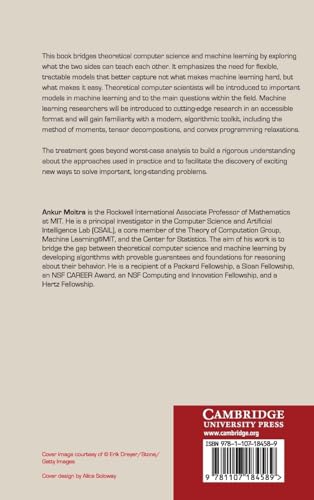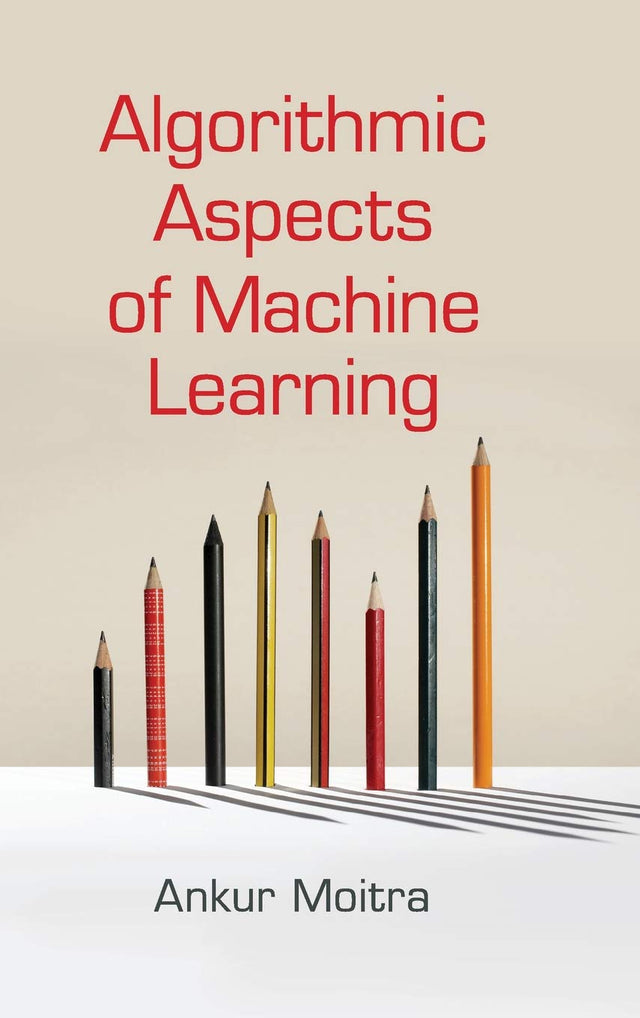Algorithmic Aspects of Machine Learning
Algorithmic Aspects of Machine Learning is backordered and will ship as soon as it is back in stock.
Couldn't load pickup availability
Genuine Products Guarantee
Genuine Products Guarantee
We guarantee 100% genuine products, and if proven otherwise, we will compensate you with 10 times the product's cost.
Delivery and Shipping
Delivery and Shipping
Products are generally ready for dispatch within 1 day and typically reach you in 3 to 5 days.
Book Details
-
Publisher: Cambridge University Press
-
Author: Ankur Moitra
-
Language: English
-
ISBN: 9781107184589
-
Pages: 158
-
Cover: Hardcover
-
Edition: 1st edition
-
Release Date: 31-08-2018
-
Dimensions: 9.1 x 6.2 x 0.6 inches
About The Book
Bridging Theoretical Computer Science and Machine Learning by Ankur Moitra explores the intersection of two major fields: theoretical computer science and machine learning. The book serves as a bridge, highlighting what the two areas can learn from each other. Its primary focus is on understanding the fundamental models and questions in machine learning, and the approaches taken by both fields to address them.
Moitra emphasizes the need for flexible, tractable models that simplify machine learning, aiming to explain not just the difficulties in the field but also the elements that make machine learning successful. Theoretical computer scientists are introduced to key models used in machine learning, while machine learning researchers gain exposure to cutting-edge research in an accessible format.
The book also introduces several algorithmic tools including the method of moments, tensor decompositions, and convex programming relaxations, extending beyond worst-case analysis. This approach encourages a rigorous understanding of the practices used in machine learning and facilitates the discovery of new ways to solve important, long-standing problems.
Key Features:
-
Bridges Two Disciplines: Provides a cross-disciplinary introduction, making it relevant for both theoretical computer scientists and machine learning researchers.
-
Modern Algorithmic Tools: Introduces modern methods such as tensor decompositions, method of moments, and convex programming relaxations.
-
Accessible Format: Written in an accessible manner, suitable for both theoretical computer scientists and machine learning researchers.
-
Beyond Worst-Case Analysis: Shifts focus to practical approaches in machine learning, addressing real-world challenges.
This book is essential for anyone interested in the crossover between theoretical computer science and machine learning, providing a unique perspective and toolkit for solving complex problems in both fields.

